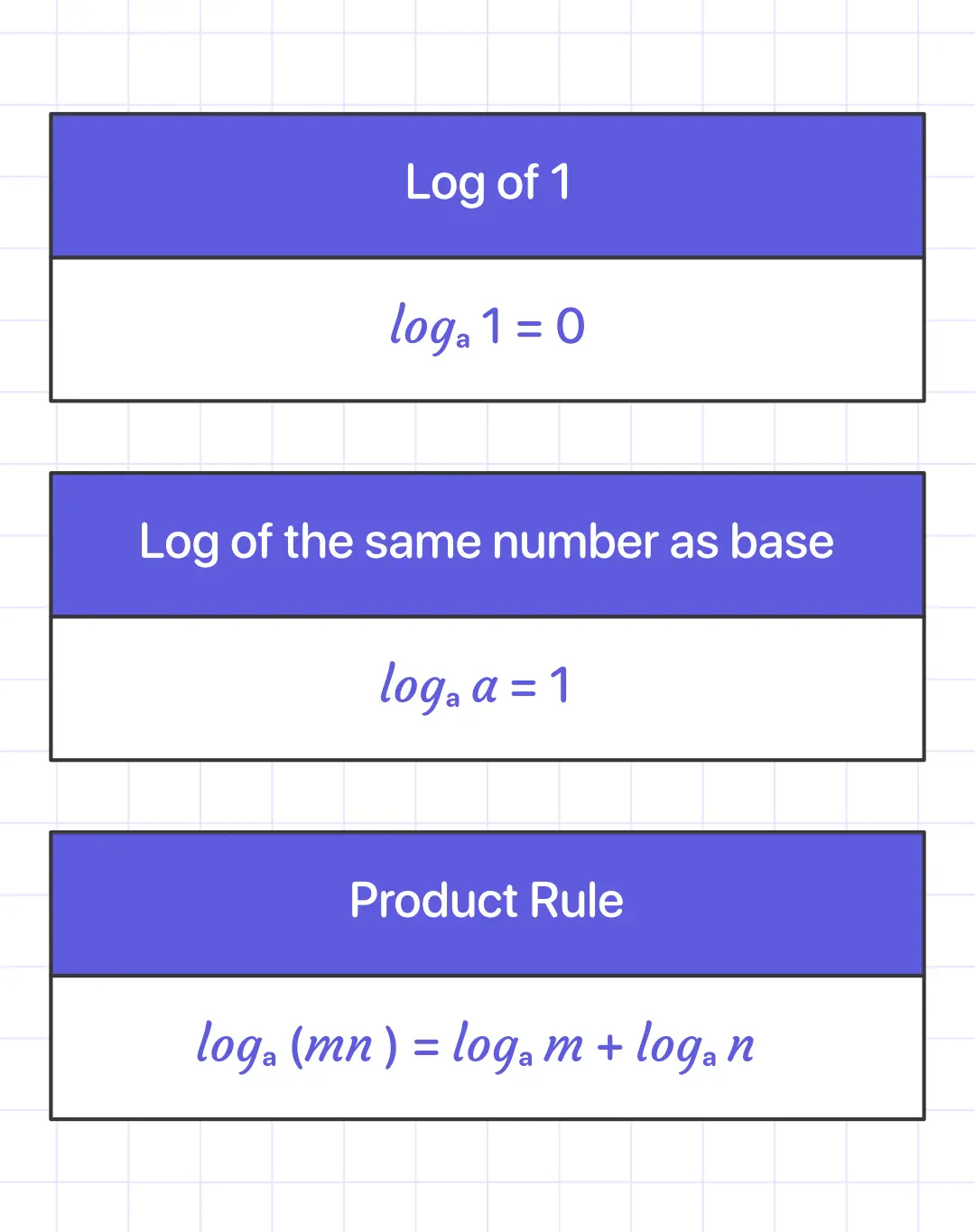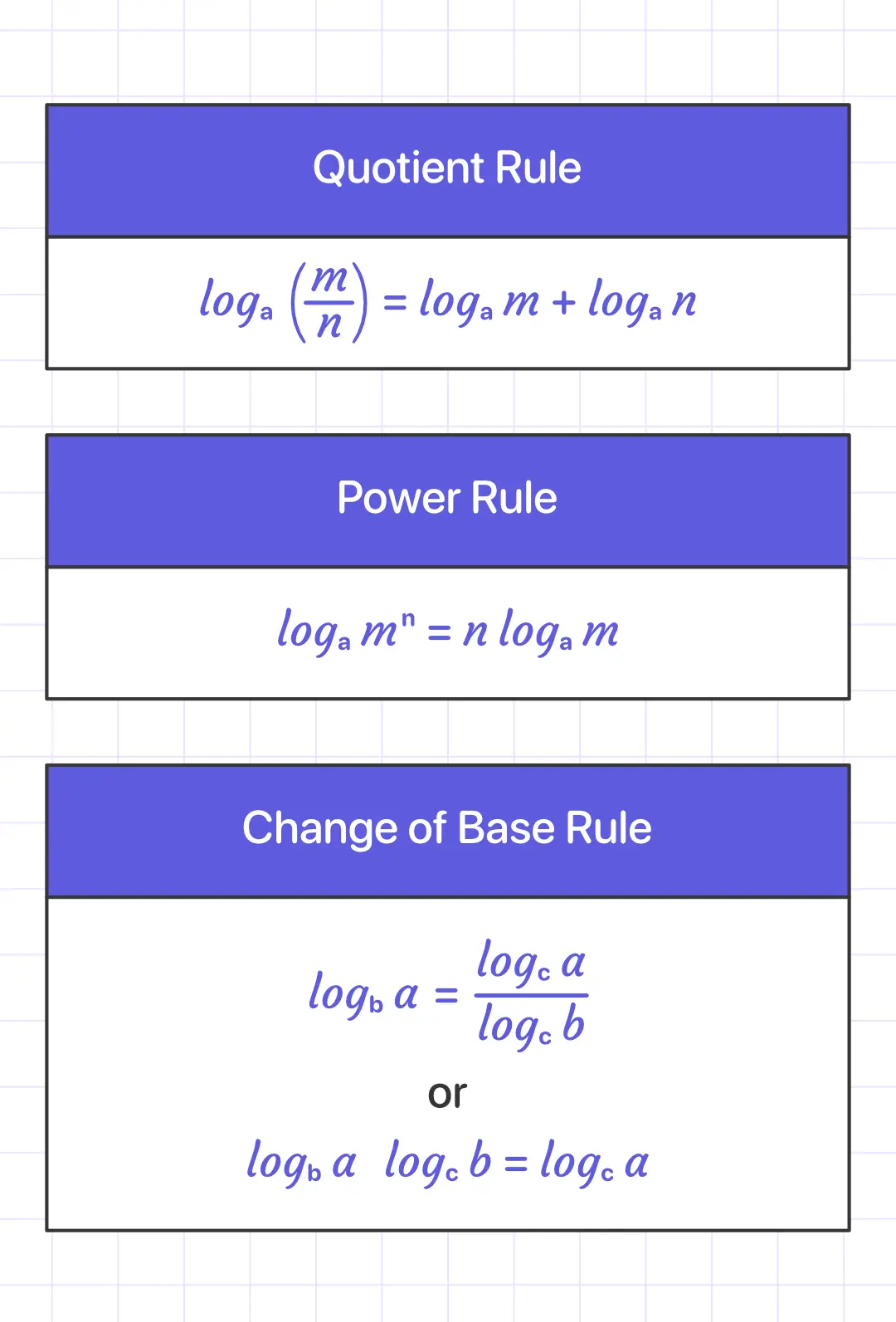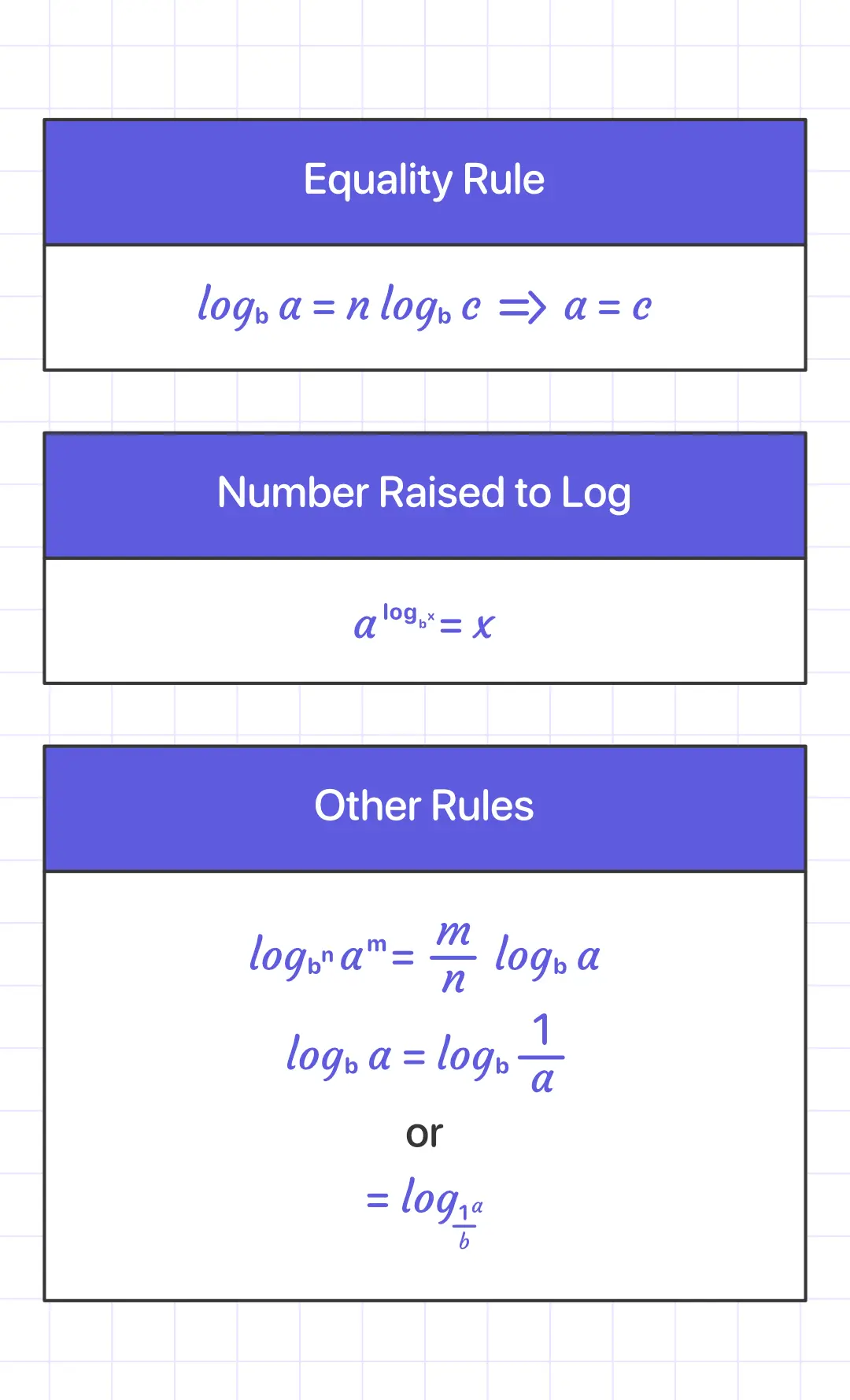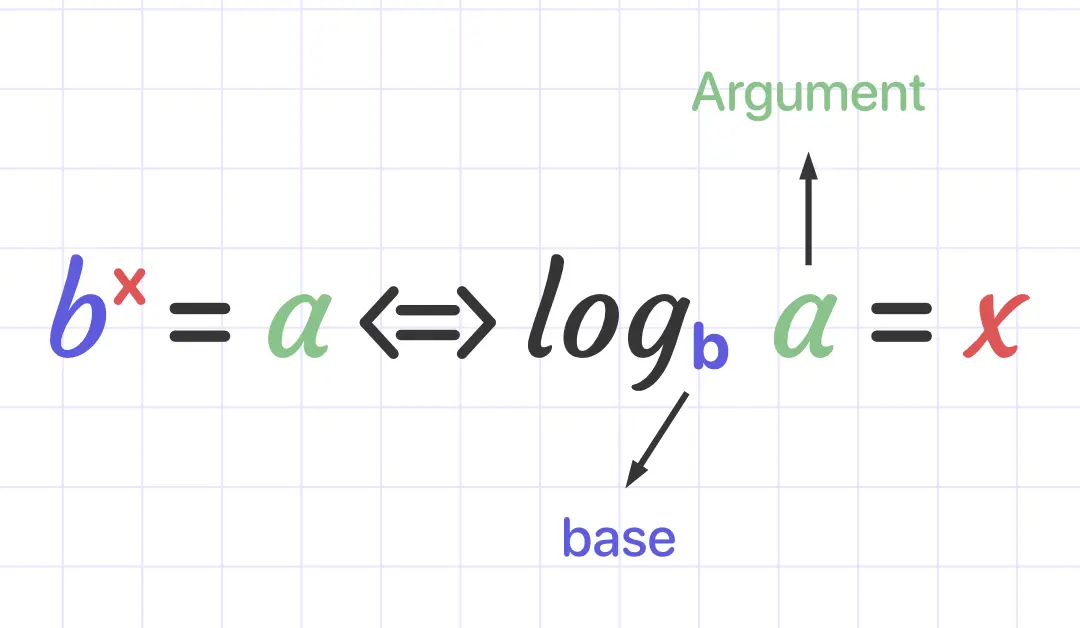MathMaster Blog
Logs (or) logarithms are another way of expressing exponents.
Essential rules of logarithms you should remember & use:



The structure of a logarithm:

Example 1:
Convert to logarithmic form $12^{x/6}$ = 18
Solution:
Convert the exponential equation to a logarithmic equation using the logarithm base (12) of the right side (18) equals the exponent (x/6).
Answer: $log_{12}18$ = x/6
Example 2:
Express 4^3 = 64 in logarithmic form.
Solution:
The exponential form a^x = N can be written in logarithmic function form as
$log_{a}N$ = x
So, 4^3 = 64 can be written as $log_{4}64$ = 3
Answer: $log_{4}64$ = 3
Example 3:
Simplify $log_{2}(1/128)$
Solution:
To simplify the provided logarithm, we apply the properties of logarithmic functions.
$log_{2}(1/128)$ = $log_{2}1$ - $log_{2}128$
= 0 - $log_{2}2^{7}$
= -$log_{2}2^{7}$
= $-7log_{2}2$
= -7(1)
= -7
Answer: $log_{2}(1/128)$ = -7